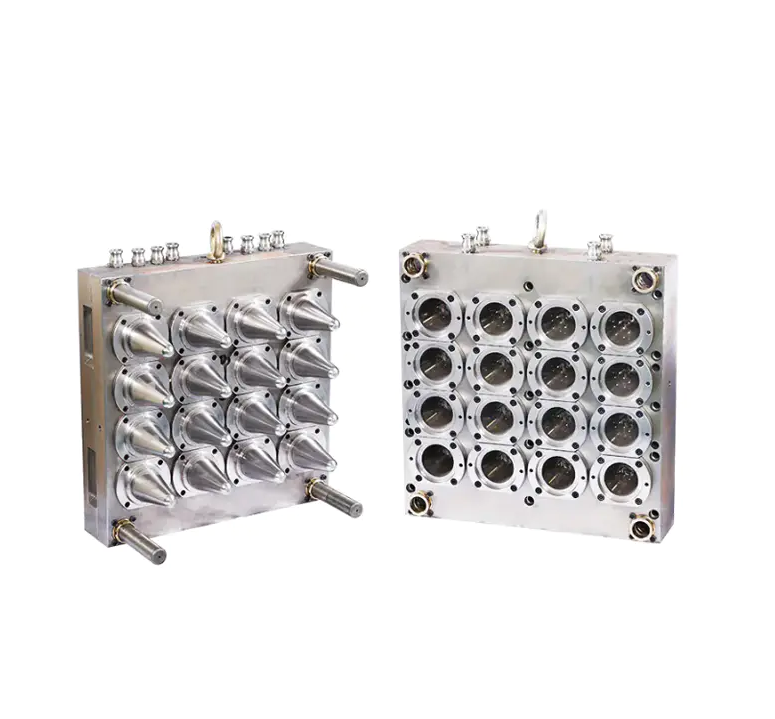How PET Preform Mold Design Influences Preform Quality?

The manufacturing of PET bottles relies heavily on the quality of PET preform molds. These molds are used to form preforms, which are then expanded into full-size bottles through blow molding. The design and maintenance of these molds directly impact production efficiency, preform consistency, and overall product quality.
A PET preform mold defines the shape, weight, and wall thickness of the preform. Precision in mold cavities ensures that each preform meets the required specifications, preventing weak points and inconsistencies. Irregular preforms can result in bottles that fail during filling, transportation, or storage, emphasizing the importance of accurate mold design.
Mold materials are chosen for their strength and resistance to thermal stress. Steel alloys are commonly used for their durability and ability to withstand repeated injection cycles. Regular maintenance, including cleaning and inspections, helps maintain cavity integrity and prevents defects such as scratches or uneven surfaces, which could affect the preform quality.
The number of cavities in a PET preform mold influences production efficiency. Multi-cavity molds allow for the production of several preforms in a single cycle, improving throughput without compromising quality. Consistency between cavities ensures uniform preforms, reducing material waste and facilitating the blow molding process.
Surface treatment and cooling systems within the mold can improve preform quality. Smooth cavities reduce friction and prevent marks on the preform surface. Temperature-controlled molds help maintain consistent cooling, minimizing internal stress and potential deformation. These design features contribute to higher production efficiency and more reliable preforms.
Sustainable production is also a factor in PET preform mold design. Molds that enable the production of lighter preforms reduce material usage and environmental impact. Efficient molds lower energy consumption during production by minimizing cycle times and reducing rejected preforms.
In conclusion, PET preform molds are fundamental to PET bottle manufacturing. Their design, precision, and maintenance influence both the quality of preforms and the efficiency of the production process.
- Art
- Causes
- Crafts
- Dance
- Drinks
- Film
- Fitness
- Food
- Giochi
- Gardening
- Health
- Home
- Literature
- Music
- Networking
- Altre informazioni
- Party
- Religion
- Shopping
- Sports
- Theater
- Wellness



